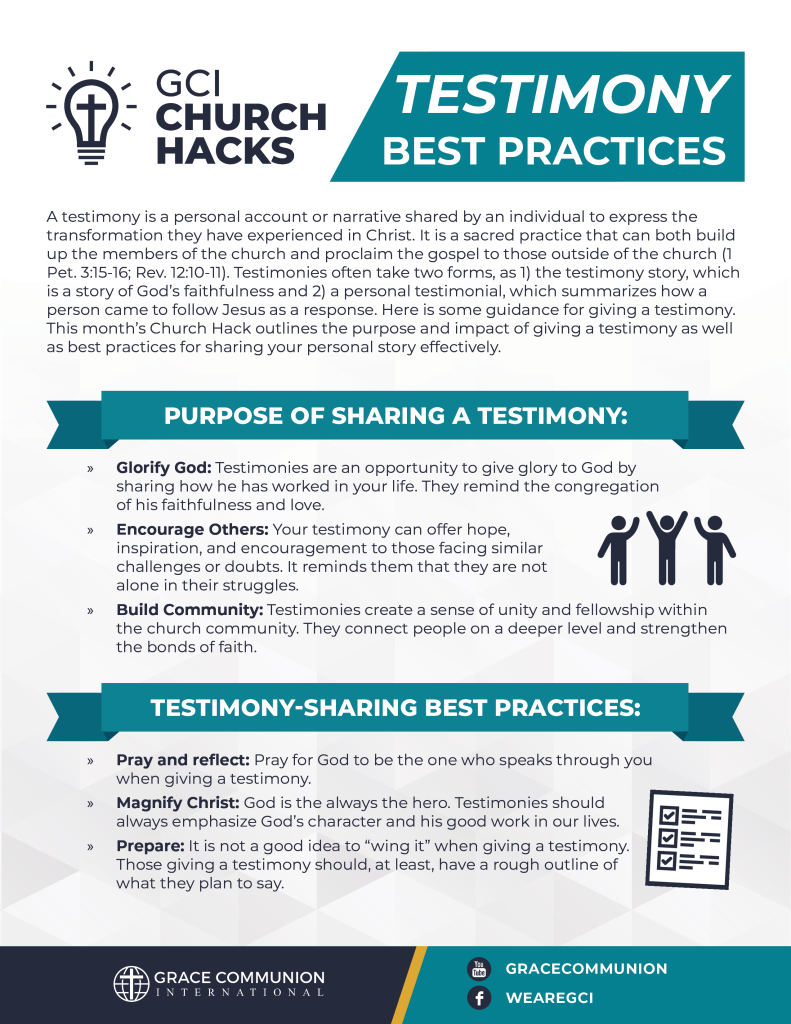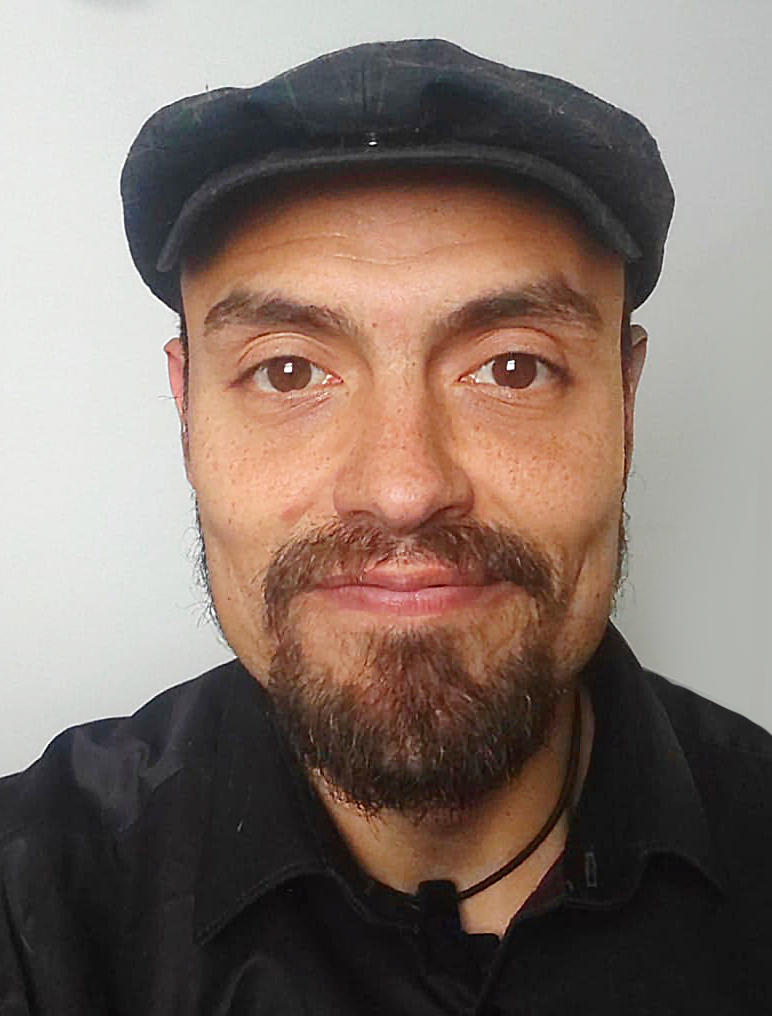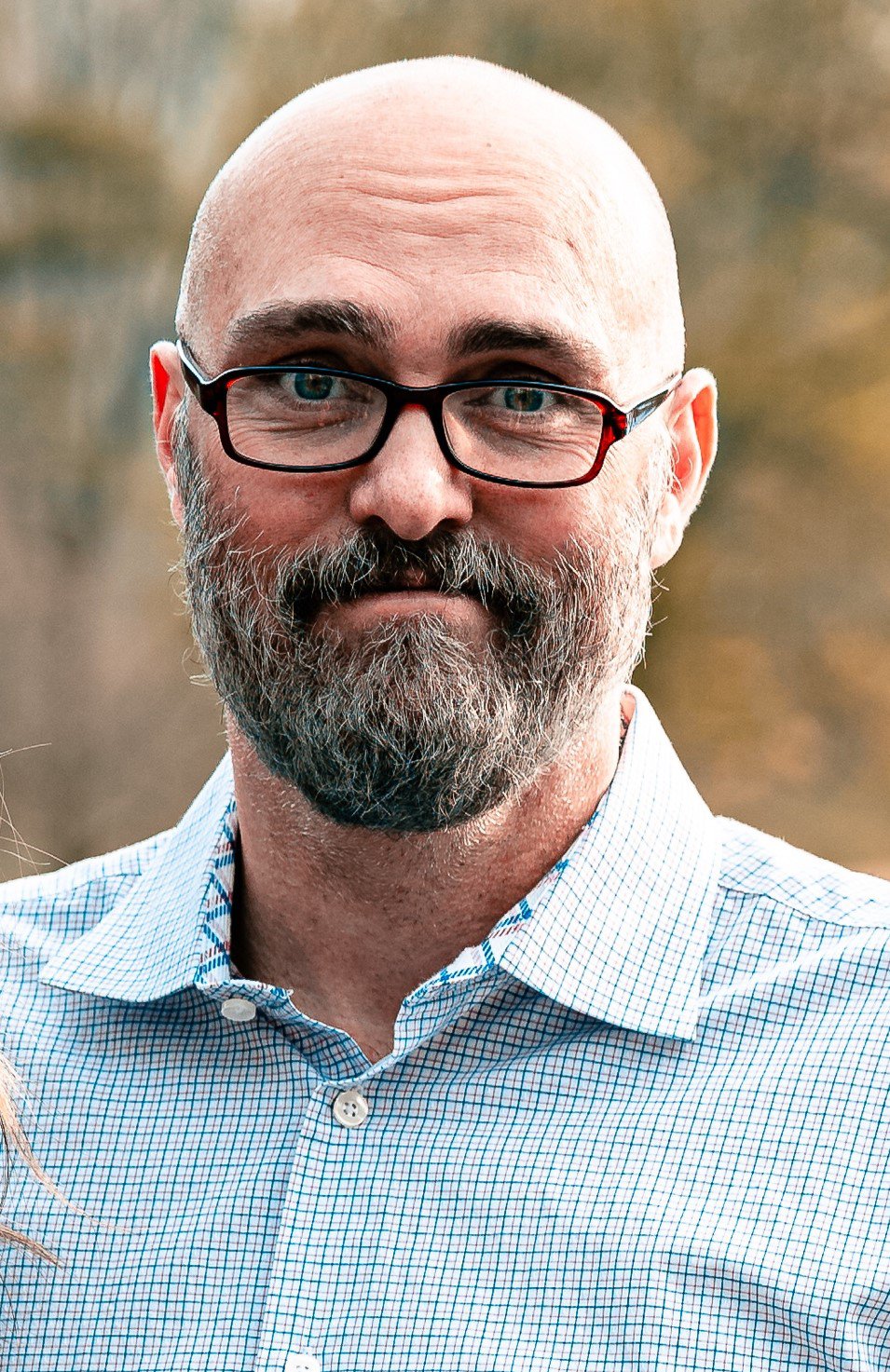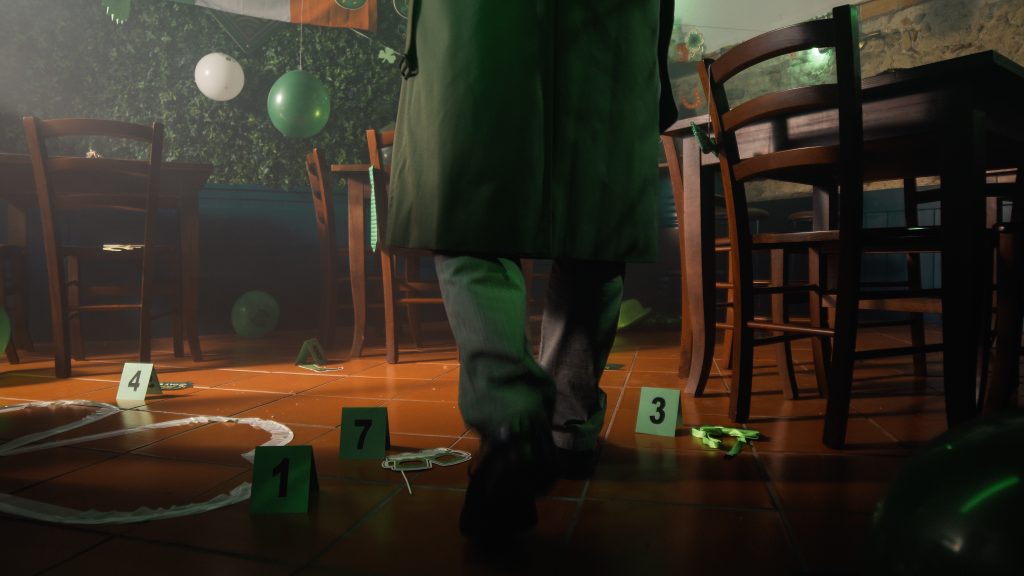Into the Wilderness w/ Brad Turnage
Welcome to the Gospel Reverb podcast. Gospel Reverb is an audio gathering for preachers, teachers, and Bible thrill seekers. Each month, our host, Anthony Mullins, will interview a new guest to gain insights and preaching nuggets mined from select passages of Scripture in that month’s Revised Common Lectionary.
The podcast’s passion is to proclaim and boast in Jesus Christ, the one who reveals the heart of God, Father, Son, and Holy Spirit. And now onto the episode.
Anthony: Hello friends and welcome to the latest episode of Gospel Reverb. Gospel Reverb is a podcast devoted to bringing you insights from Scripture found in the Revised Common Lectionary and sharing commentary from a Christ-centered and Trinitarian view.
I’m your host, Anthony Mullins, and it’s my delight to welcome our guest, Brad Turnage. Brad is the director of youth and family ministries at Westminster Presbyterian Church in Charlotte, North Carolina. And he has worked in youth ministry for nearly 20 years and has served alongside his wife, Jamie, since 2009.
And they both feel a deep calling to work with teenagers and their families and are committed to walking alongside both as they come to understand the deep love of God, which he has for them in Christ. And in his free time, Brad loves traveling (amen), photography, darts (hey, Ted Lasso), and disc golf.
My friend, thank you for being with us. Welcome to the podcast. And since this is your first time on Gospel Reverb, we’d love to know a bit about your story and how you are participating with the Lord these days.
Brad: Yeah, I have worked with teenagers pretty much just about every year of my adult life—different churches. And also spent a few years working with Young Life.
And I keep trying to do other things, but God just keeps bringing me back to working with teenagers. And I think really, it’s just such a hard kind of season of life. And especially for our kids that are growing up in the church and trying to find that space to honestly figure out, what is it that I believe? And is God real? And I just really come to life getting to walk alongside these students who are coming in and out of the great love of their Father.
But over the last few years, I’ve really more so been drawn to working with families. The best youth ministry happens at home. And so, I love going into family’s homes spending time, not just with students, but with their parents. Students and parents together, just helping our parents figure out how they can navigate this terribly difficult thing called adolescence. That is just as difficult for parents as it is for our young people.
And so, I’m blessed that I’ve been able to do that pretty much my whole life, and my wife is a great partner in that she makes me a better servant of the Lord as she serves alongside me. So just so thankful. And currently I’m doing that in Charlotte, North Carolina at Westminster Presbyterian Church, and I’ve been here for about a year and a half.
[00:03:27] Anthony: Yeah. I so appreciate what you said as someone who has served in youth ministry for a couple of decades myself. I don’t think I’ll ever leave that behind, right? Yeah, it’s like you said, you’re trying to do other things, but God keeps drawing you back to the way he’s made you.
And thank you for your love for Christ and the love for the family. And that’s encouraging because I think one of the biggest mistakes I’ve made in youth ministry was trying to segment the teens away from their families. Not intentionally, but some of the activities and the way we went about our ministry did that. So, it’s good to see that holistic approach.
As I mentioned at the top, Brad, this podcast is devoted to sharing commentary on the scriptures from a Christ-centered and Trinitarian view. That says a lot, but what does that say from your perspective? What does it mean to read Scripture in a Christ-centered and Trinitarian way?
[00:04:25] Brad: I would say two things to that. First, I think it just starts with an understanding that the entire Bible is one story. It is the story of how God will bring about his kingdom through the life, the death, and the resurrection of Jesus. So, no matter what you’re reading, that is the backdrop. That is the story—even if it’s before Jesus shows up on the scene. And of course, John reminds us that he was there from the beginning, that Word of God from the beginning. And so, I think having a Christ-centered view of reading Scripture is everything you read is through that lens.
And for me, practically how that I try to prepare myself to do that is I just live in the Gospels. Somebody told me several years ago, every month reread a Gospel, and I don’t do it quite that often. But I’m constantly reading the Gospels as I’m reading the Old Testament and Paul’s letters just as a reminder that everything I’m reading is about this person, Jesus.
And the next thing I would say is I would quote Karl Barth and say that Scripture is a witness to the Word of God, that Word of God, Jesus, as John 1 says. And not only a scripture witness to the Word of God, but because of the Holy Spirit that is active today, even now as the Spirit moves through those words of Scripture, it becomes the word of God here and now.
And so, you’ve got the Father and the Son and the Holy Spirit so active in Scripture, and when we come to it, we have this opportunity, not just to learn about Jesus, but to be in relationship, to be in his presence. One thing I tell our students over and over again is if you want God, if you want Christ and Jesus and all of this to become real in your life, you got to read Scripture.
You have got to start with reading Scripture. It really is a living word of God today. And so that’s what I would say in terms of what it means to have a Christ-centered and Trinitarian kind of view of Scripture.
[00:06:30] Anthony: I was struck, Brad, by the fact that you said this is what it looks like in part to be in relationship with God.
Can you tell us more about that, what you mean? How do we come to scriptures when they’re just words on a page and it can feel flat and unalive? How does that enter into relationship?
[00:07:11] Brad: I think it’s a mystery. I can’t explain it. But I believe it because of my own life and pretty much everybody that I’ve ever talked to that have said, the time in my life that God really became real, and I felt that presence and I felt like I was in relationship with him was after I really took serious reading Scripture.
And I think the words are flat. But the practice of reading Scripture, I think, any practice when you start doing something. And if you want to run a marathon and you begin practicing, it’s challenging, it’s hard, but any practice, the more you do it, the more you come to life and the more that what you’re doing becomes easier.
And I think that just committing to reading Scripture is the only way to discover that mystery of there’s something about those words that are different. There’s something about the Bible that’s different. And I do think that all of Scripture is so important, but again the only way for the Old Testament to come to life is by knowing the one that it’s pointing to is Jesus Christ.
And so again, I think that’s why it’s so important just to live in the Gospels as we’re reading everything else.
[00:08:06] Anthony: Well, said, sir. All right.
Let’s do this. Here are the lectionary passages we will be discussing today.
1 Corinthians 9:16-23, “For the Sake of the Gospel”
Mark 9:2-9, “Transfiguration Glory”
Mark 1:9-15, “Into the Wilderness”
Mark 8:31-38, “The Way of the Cross”
Our first pericope of the month is 1 Corinthians 9:16-23. I’m going to be reading from the New Revised Standard Version, the updated edition, which is the Revised Common Lectionary passage for the fifth Sunday after Epiphany, which is February 4.
If I proclaim the gospel, this gives me no ground for boasting, for an obligation is laid on me, and woe to me if I do not proclaim the gospel! 17 For if I do this of my own will, I have a wage, but if not of my own will, I am entrusted with a commission. 18 What then is my wage? Just this: that in my proclamation I may make the gospel free of charge, so as not to make full use of my rights in the gospel. 19 For though I am free with respect to all, I have made myself a slave to all, so that I might gain all the more. 20 To the Jews I became as a Jew, in order to gain Jews. To those under the law I became as one under the law (though I myself am not under the law) so that I might gain those under the law. 21 To those outside the law I became as one outside the law (though I am not outside God’s law but am within Christ’s law) so that I might gain those outside the law. 22 To the weak I became weak, so that I might gain the weak. I have become all things to all people, that I might by all means save some. 23 I do it all for the sake of the gospel, so that I might become a partner in it.
Brad, I’ve heard it said that there’s a fine line between preaching with conviction and preaching with arrogance. And I think the fine line is humility. Paul writes, there’s no ground for boasting in the proclamation of the gospel. Tell us about that. What does he mean?
[00:10:20] Brad: I think there’s no place for boasting because the gospel begins with our death, and dead people have nothing to boast about. What is a dead person going to boast about? That you’re more dead than the next guy? That you’re better at doing absolutely nothing of any real value? And I think more than anybody, Paul understood that, especially coming from his old life that was blatantly sinful, right?
We all have that same darkness, but for Paul, he couldn’t deny it. He had this history, and he knew that any hope he had was that his life was now given to him in Jesus. In Galatians 2:20 he says, I’ve been crucified along with Christ. The life I now live I’m only living through the faith of the Son of God who gave himself for me.
There’s no boasting because you didn’t do anything and all you can do is hope that if you’re dead enough, someone else will resurrect you. And I think that’s what Paul means. And ironically the one thing that Paul does allow himself to boast about is the fact that he’s weak enough not to get in the way of what Jesus is doing in his life, that Jesus is his life.
And if we can just get out of the way, then then we get to participate in that. And so, I think it is this starting point of, our life has no value aside from the one that has filled us through Jesus Christ with this new self. So, I think that’s why Paul says there’s no boasting.
There’s nothing to boast about. You didn’t do anything.
[00:12:02] Anthony: That’s such a good perspective. And that reminds me of Robert Capon, and I’m quoting loosely here, but he talked about Lazarus coming out of the grave. What else was he going to do? Life himself told him to come forth, and he came forth. And that’s, I think, a metaphor for all of us, is it not?
[00:12:20] Brad: I think so. But again, you’re going to hear me say the words upside down and backwards a lot today. It is that mystery that the only way to life is in our death. And ultimately, that is true. That day that we pass on in our death, we come into the fullness of life and the kingdom.
But it’s also true right now that when we learn to die to ourself and we learn to let go, we allow for Christ to come to life. And that letting go that dying to ourself is such an important part of the Christian life. And I think you were right on when you said that fine line between preaching with conviction and preaching with arrogance is humility.
I think the harder question is how do we find that humility? Especially, preaching is such a terribly challenging job to stay humble because you’re literally standing on a pedestal in front of everybody. And people tell you how great you are, and people tell you.
For me, the pathway to humility is just being really honest about my own darkness. Years ago, I was preparing a talk on the Good Samaritan, and I was talking to my pastor, and he said the most important part of the Good Samaritan is that it reminds us that we have the ability to see somebody as less than human.
And I thought, no way. But the more that I just get honest about my sin, the more I see there’s some real darkness and there’s some real brokenness that is in my heart through my old self. And my old self is still a ghost that’s trying to cause problems. And the more I’m honest about my sin with myself, the more I hear the voice of God say, and yet I do not condemn; you now go and do likewise.
I think that’s how you are able to preach with boldness without it turning into boasting is if you’re just really honest about the fact that you’ve got nothing to give outside of Christ in you because of that old self that still ghosts around. But we try to let it go so that the new self will do what it does, and that is point to Jesus.
[00:14:47] Anthony: Yeah, I’ve been rereading a book by Eugene Peterson called Working the Angles and he talked about how the community of faith is a community of sinners and one of those sinners happens to be called pastor or preacher. That puts it in perspective. I’m just the one that, for whatever reason, the Lord is speaking a word but it’s his word.
And I have been raised to new life in him because I was dead, and I had nothing to do with it. So yeah, well said.
Paul really makes the point, leans into the fact that he’s trying to be all things to all people. And so, when you exegete a passage like this, I think the question has to be asked, what does it look like to be a slave to all, Brad? Help us. What does that look like?
[00:15:42] Brad: Yeah, good luck with that one. Slave to all. Is there a harder calling? It’s just everything, giving away of everything to all. I’m not there yet, but I continue on, trying to take hold of the one who has taken hold of me in Jesus.
And I think it starts with having a paradigm shift that you have really died with Christ and the life you now live is in Christ. It’s not yours. You are a new creation bought and paid for by the blood of someone else. And not only have you been bought with a price, the one who bought you has given you away to the world for the sake of the world. That is our calling.
In the Sermon on the Mount, Jesus says, Be the salt of the earth. Preserve that image of God in this world, be the light of the world. You are the light of the world to be this reflection of God in the world for the sake of the world. And I think one of the things about modern Christianity, at least here in the West, is that we don’t talk enough about what our role is in the world.
And that it’s to live for the sake of the world to be the image of God in the world. God in Christ made himself a servant, and he gave himself away to all and his life is now our life. And so, we have that same calling. The calling to give your life away. And the crazy thing is that the hardest thing is that it’s not just for the believers around us, but it’s for those who don’t believe, and it’s not just for those who love you, but it’s also for those who hate you. To make yourself a slave to all, as Paul says to, starts with this realization that our life isn’t ours to begin with.
And of course, it’s easier said than done. But coming to an understanding of that, I think has to be the start. And again, that’s upside down and backwards, but most anything in the gospel is going to feel that way.
And then if I were going to say, practically, how do we live that out, this idea of being a slave to all? I talk about two things. I’d say, first is you got to figure out the places that you’re already a slave. Because you can’t be a slave to all and a slave to something else that has you, that’s controlling you.
So be really honest. Where are the places in your life that you’re a slave? And start figuring out how to let some of those things go. You can’t hold onto two things at once. What are those things that demand our attention and demand our obedience? Ask God to help you see those things and then to have the faith through Christ to let those things go.
And then I’d also say that if you want to be a slave to all, you have to start small. You can’t be a slave at all before giving your life away to some. So, what does that mean with your family? What does that mean for the people around you? If you can’t give your life away to your wife and to your neighbors, you’re not going to do it “to the all” that Paul calls us to. So much of that is just putting other people’s interest above yours.
And it’s a great tool for ministry. And it’s something that in youth ministry, I’ve really seen God use. Coming along somebody and learning to love what they love is a great way of being in relationship, in sharing Christ with somebody. I had a student several years ago that I had been trying to connect with, and I just never could really get him to lean in. It just felt every time I tried to talk to him, I was hitting a wall. But I found out from his mother that he was a big fan of this TV show that was on Netflix. And one weekend, I just binge watched the entire show. And then I learned to love what he loved. That was the starting point of coming alongside of him for a couple of years and really getting to share Christ and Christ’s love and to be loved back by him and to see Christ in him.
I think that’s what it means. It’s just this perspective change that it’s not all about you. And it can’t be all about you because again, you’re dead and the one that is your life is the king of giving it all away, the king of being the slave for all. The more we understand that the more we can find little ways to do it.
[00:20:29] Anthony: Friends, we just had church. Brad was our teacher. Thank you. That was rich and challenging at the same time, especially in our culture where it is all about me. And it’s not. But that’s the way we try to live, and there’s a reason it doesn’t end well, right? It’s not the way it was meant to be. Thank you, Jesus, that you were the servant of all.
Let’s pivot to our next passage of the month. It’s Mark 9:2-9. It is a Revised Common Lectionary passage for Transfiguration Sunday on February the 11th. Brad, would you read it for us, please?
[00:21:09] Brad:
Six days later, Jesus took with him Peter and James and John and led them up a high mountain apart, by themselves. And he was transfigured before them, 3 and his clothes became dazzling bright, such as no one on earth could brighten them. 4 And there appeared to them Elijah with Moses, who were talking with Jesus. 5 Then Peter said to Jesus, “Rabbi, it is good for us to be here; let us set up three tents: one for you, one for Moses, and one for Elijah.” 6 He did not know what to say, for they were terrified. 7 Then a cloud overshadowed them, and from the cloud there came a voice, “This is my Son, the Beloved; listen to him!” 8 Suddenly when they looked around, they saw no one with them any more, but only Jesus. 9 As they were coming down the mountain, he ordered them to tell no one about what they had seen, until after the Son of Man had risen from the dead.
[00:22:06] Anthony: So, Brad, the liturgical calendar gives us Transfiguration Sunday every year. Why do we keep telling this story? What’s the big deal here?
[00:22:16] Brad: It’s the biggest deal. If I could choose any moment in Jesus’ life to go back and be a part of and see it’s without question, the transfiguration. It’s the moment of all moments, I think, in the entire Bible, at least of the moments that have already happened. It seems like there are going to be some really big moments coming later, but in terms of what’s happened, it’s the moment.
Because if we think about Jesus’ life, including his miracles, if we could watch them, I think we’d find them to be more mundane than we expect. There was no smoke and lights. There wasn’t this hoopla and probably from our perspective, nothing that seemed super spiritual. He used mud to wipe away a man’s blindness. That’s incredible, but it’s not a show. And you can probably walk away from that, convincing yourself, was that man really blind after all?
But the transfiguration, there’s nothing mundane about it. It’s the moment in the gospel that the curtain hiding the mystery of Christ is pulled back. And for a moment, the disciples see what they had been trying to come to terms with, this reality that Jesus is really God’s Son. He is God in the flesh bathed in the light, that he is bathed in this glory. And none of the gospels really matter if Jesus isn’t God in the flesh.
If Jesus isn’t God in the flesh, then what’s the point? There were a lot of people that did really good things. There were a lot of people that did the things Jesus did but only one of them was God in the flesh. I think that’s why it is so important. It is just that moment that tells us Jesus really is who he says he is.
[00:24:09] Anthony: He tells us that. But his good buddies, like Peter, missed the point of what was happening. Or at least they were so overwhelmed by what they were experiencing, they didn’t know what to do with it.
I’m just curious and I know this is a leading question, but can we miss the point too? Because they wanted to stay up there on the mountain, and Jesus is like, no we’re going down the mountain and there’s work to be done. What can we take from this, Brad?
[00:24:39] Brad: Poor Peter. He misses the point. But Anthony, what are you supposed to say? I think the only thing you can ever really say that gets the job done is just thank you. And then you just shut up.
I think that’s the only thing Peter could have said in that moment. Thank you, God that we’re here. None of the disciples knew what to say. Peter just proved that fact by trying to say something.
But as for the mountaintop, yeah, I think we miss it all the time. And back to what we were talking about earlier. I think it’s because of this paradigm shift that life really is from our perspective, upside down and backwards. Of course, we want to stay on the mountaintop. Of course, the mountaintop is where we assume that we’re meant to live.
We have to recognize why we have these mountaintop experiences and what they’re for. I think God gives us these mountaintop experiences so that we might actually trust when he says the really hard things like, take up your cross and follow me, when he tells us to give our life away. And that the only way you’ll actually find your life is by losing your life. If all we have is that? Without the mountaintop, then how do you do it? How do you live the challenging life of giving yourself away to others, aside from these moments where you get to really experience God and his glory?
And those moments are beautiful. And I actually think it’s a lot like the miracles that Jesus performs. And we really want Jesus to be the miracle worker. Of course, 2,000 years ago when Jesus showed up, they wanted God to be the miracle worker who goes around taking care of all of our problems, healing the sick, feeding the poor, but that’s not who Jesus is.
He does these miracles so that we might believe him when he talks about the real mysterious way that he’s going to save us. Think about it. He feeds 5,000 people with this amazing miracle. But then immediately after that, he says, but I am the real bread that will give you life and whoever comes to me will never be hungry again.”
If Jesus would have just started with. I am the real bread of life. People would have been like, what? What he’s talking about? But once Jesus feeds 5,000 people with a few loaves, you go, Oh maybe I should pay attention to what he says. He gives these miracles.
It’s the same way with the raising of Lazarus, right? He raises Lazarus from the dead, but moments before that, he says the real miracle, which is I am the resurrection and anybody who believes in me will never die. How do you believe that? Jesus says, all right, I’ll give you this raising of Lazarus so that you might actually believe the real miracle—that is that nobody who believes in me will ever die.
I think that the mountaintop is like that. The Christian life is hard, and it’s mysterious, and it’s upside down and backwards. So, to give us the faith to do it, God gives us these moments. But we don’t live there as much as I’d like to. It’s just not where life is.
We read Scripture. We learn about this mystery of God who includes us in his life, death, and resurrection, who says, trust me and follow me, and you will find life when, like me, you give yours away. And that’s hard to believe and even harder to do.
And we’re given these mountaintops, whether that’s a camp or at a conference, whether it’s through the Spirit when you’re praising or singing. Maybe it’s through experiencing a real miracle, seeing someone healed after you pray. But we’re not meant to live there. We’re meant to follow Christ into the valley of the shadow of death, trusting that the only way we’ll ever experience real life is through losing ours.
[00:28:47] Anthony: It makes me wonder if scarcity is also behind this desire not to go down the mountain. We’ve experienced the brilliance of God here, but will we experience the brilliance of God in the mundane. I think the communion table teaches us, we do in just the common, ordinary, what might seem mundane, like bread, wine. It’s always present. And I think we do that with a worship gathering too. We think sometimes we’re coming into the presence of God. And really what we’re doing is asking the Spirit to grow our awareness of the presence of God already there and already everywhere we go. Even as we come down the mountain, God’s there. He’s at work. Grow our awareness, Lord. Right?
[00:29:36] Brad: Yeah. And I think communion is such a great picture of that because he takes the most mundane things that the disciples would have seen every day. There’s not a single day that they’re not breaking bread. So, Jesus didn’t use this illustration of this great banquet. He took the most mundane thing and said, every day when you’re breaking this, I’m a part of that. I’m a part of not just the high, but I’m a part of the very low. And it’s beautiful.
I think what happens when we come to the table enough to experience that bread and the body and the blood of Christ? What happens if we do it enough that every time we sit down at a table to enjoy a meal, we’re reminded that God is present even here in every moment of our life?
Yeah, it’s hard to believe because it feels mundane, and we just assume that God isn’t mundane. But he’s just everything! So of course, even in the mundane, he’s a part of that.
[00:30:38] Anthony: Amen. Hallelujah. Let’s move to our next pericope of the month. It’s Mark 1:9-15. It is the Revised Common Lectionary passage for the first Sunday of Easter Prep / Lenten Season, which is February 18.
In those days Jesus came from Nazareth of Galilee and was baptized by John in the Jordan. 10 And just as he was coming up out of the water, he saw the heavens torn apart and the Spirit descending like a dove upon him. 11 And a voice came from the heavens, “You are my Son, the Beloved; with you I am well pleased.” 12 And the Spirit immediately drove him out into the wilderness. 13 He was in the wilderness forty days, tested by Satan, and he was with the wild beasts, and the angels waited on him. 14 Now after John was arrested, Jesus came to Galilee proclaiming the good news of God 15 and saying, “The time is fulfilled, and the kingdom of God has come near; repent and believe in the good news.”
So, Brad, if you were preaching this text, what would you say? How would you herald the gospel?
[00:31:45] Brad: I think you have to at least, first, start with the Trinity, right? If I’m not mistaken, I think this is the only place in Scripture where we actually see the three persons of the Trinity interacting together in this way. The Spirit descends on the Son like a dove and the Father proclaims, You are my son.
And you have those three persons of the Trinity all interacting with one another. And whenever you can point to the Trinity, you have to do it. Because I think the Trinity shows us—I talk about this a lot with the students that I work with, good luck trying to understand the Trinity. And even more luck trying to talk about it because you can’t talk about the Trinity without stumbling into some heresy, here or there, just because it is so mysterious, and it’s so out of our kind of context of what we can understand.
But even though we can’t fully understand it, we can learn from it. And the most important thing I think we learned from the Trinity is that God is relational. And that’s crazy. That’s crazy that God is not only relational, but that he invites us into that relationship. And so, we see a Father who deeply loves his Son, and that love is flowing through the Holy spirit.
And I don’t understand it, but I know that God has said I’m included in it. And I’m so thankful that that same Spirit is a part of my life that helps me love the Father in Christ. You could build a sermon around that easily. I could talk for so long about that.
But I think I could also build a sermon—I might focus on the way that Jesus is sent into the wilderness before he begins his public ministry. It reminds us of those times in the Old Testament that the wilderness was used to prepare somebody for God’s work. Jacob goes into the wilderness and wrestles with God and then Israel is born.
Moses meets God in the wilderness before freeing the Israelites. And David wrote so many of his psalms fleeing from Saul in the wilderness. So, there’s something about the wilderness in Scripture that allows for God to show up in a meaningful way. I would probably focus in on that, on the wilderness.
[00:34:12] Anthony: As I’m thinking about your thoughts and trying to process what I’m hearing, I agree. If the Trinity is there, point out the Trinity! And this is where [Karl] Barth is so helpful to me. He gives us a language of talking about Trinitarian action. And he says we can’t comprehend it. All we can do is apprehend, get glimpses. And I appreciate the fact that you said we’re going to dabble in heresy here or there, not intentionally, but we will, because it’s a mystery! And Lord, fill us with wonder again. Sometimes we just make Christianity so flat.
So that leads us, as you said talking about the wilderness—and I do want to go there because … why? Okay, so Jesus hears these affirming words of the Father, these words that express the truth of his love. And the Spirit takes him to the wilderness right away? Come on, man, can’t we just ease into this before we go there.
So, tell us more about the wilderness because so much, as you’ve already pointed out, of Scripture we see happening in the wilderness. There’s a metaphor that maybe we don’t want to talk about and realize. What else would you say about it?
[00:35:30] Brad: Anthony, there’s no easing somebody into the wilderness, even if you would have said, all right, Jesus, you have a week, go to REI [Recreational Equipment, Inc – an American retail store], get yourself some gear. It’s still going to be tough. It’s the wilderness.
Plus, Jesus doesn’t get eased in anything. He shows up in a manger. That’s his moment of coming into this world. In some ways, Jesus going into the wilderness was this picture of him coming into our world, God in the flesh, this light in the darkness. But I do think it’s important to understand why Jesus, as he begins his public ministry, begins it with this time of struggle and this journey into the wilderness and this fasting.
And I don’t know to what extent Jesus needed to be prepared for his public ministry. And I’m certainly not going to try to figure that one out. But a journey that’s going to end in a cross might as well start in the wilderness, I think. Mark doesn’t give us much here, just that Jesus was tested by Satan.
In Matthew and Luke, we get a glimpse of just how Jesus was being tempted. I think it all has to do with how Jesus will use his power to fix the world. Robert Capon, who you mentioned earlier, talks about right-handed versus left-handed power. And right-handed power is the power to control, to coerce, the power to force. It’s what we think about as power in the world we live in.
But left-handed power is mysterious. It doesn’t look like power. It’s the power of forgiveness, power of patience, endurance, letting go. And ultimately, this is the power that we see used by God and Jesus Christ through his death and resurrection. I think the temptation of Jesus was the temptation to do a fix-up job on our broken world, to use his power to make a bad world good.
But it was never that way. It was always going to be his death and resurrection that would bring about his kingdom. The world doesn’t need to be made better. It needs to be resurrected. And it’s the same for us. It’s the mystery that is revealed to the disciples and hidden in the parables. This mystery of we find life and death, and we’re not going to find it anywhere else.
And so, I think that this temptation, even at the beginning of Jesus’s ministry as he goes into the wilderness, as he’s tempted, it feels upside down. It feels backwards. But again, God’s kingdom shows us that power doesn’t look like power, that the way that God is working in the world is not going to be the way that we expect.
And Jesus going into the wilderness is a little picture of that.
[00:38:22] Anthony: I have no doubt that there are those in our listening audience who feel like they’re in the wilderness right now. And we all are. Living in an evil age, it is wilderness. But for those that are exceptionally feeling that right now, what would you say to them? How would you encourage them?
[00:38:39] Brad: I actually think that those of us that feel like we’re living in the wilderness maybe have this blessing because it’s a reminder that we actually need. I worry about the people that don’t need God, or at least that’s the way they see their lives. There’s a gift of being in the wilderness and that is that if eventually we are reminded that the only hope we have is through someone else, then we can find that person.
I would say to those people, yeah, you’re in the wilderness, but you’re not alone. Christ is with you. And in fact, that is where James talks about when you’re—what does he say? That this testing brings about endurance. And I can’t remember exactly what he says in that first part of James, but the wilderness will change you.
And it will make you somebody that’s more like God, and more like Jesus Christ, the light of the world and who he’s called you to be, as well. And if you’re in the wilderness, maybe it’s because God is making you into somebody that can be the light of the world.
And that starts with trusting that he’s with you right there. But it’s hard. It is hard.
[00:40:04] Anthony: And maybe in another podcast, if we can get you back here and we talk about this passage of scripture, again. We’ll talk about the Spirit leading Jesus out. There are those Christians who think that God does things to them to teach them, to grow them up, to mature them in Christ, to reveal his presence. God’s a good God. He’s faithful, and he’s kind. Anyway, I’d love to have that conversation at some point. How deterministic is he?
[00:40:35] Brad: Yeah, I know. The one thing we do know is that God’s just really good at reconciling and resurrecting. So, I think we experienced God in those moments, and it feels [like] God made me go through this. But God’s just going to go ahead and resurrect anything that will die if we let go. And if we’re in that place and we really do let go and give ourselves away to Christ, that’s where we’ll find the resurrection. Because you can’t resurrect what isn’t dead! I think that’s why it feels like oh, God made me go through this so that I would experience this. But I don’t know I’m not going to try to figure out understanding all that.
[00:41:19] Anthony: But you can’t resurrect what isn’t dead. Let’s remember that.
All right. Our final pericope of the month is Mark 8:31- 38. It is the Revised Common Lectionary passage for the second Sunday of Easter Prep / Lent, which is February 25. Brad, do us the honors, please.
[00:41:38] Brad: Sure.
Then he began to teach them that the Son of Man must undergo great suffering and be rejected by the elders, the chief priests, and the scribes and be killed and after three days rise again. 32 He said all this quite openly. And Peter took him aside and began to rebuke him. 33 But turning and looking at his disciples, he rebuked Peter and said, “Get behind me, Satan! For you are setting your mind not on divine things but on human things.” 34 He called the crowd with his disciples and said to them, “If any wish to come after me, let them deny themselves and take up their cross and follow me. 35 For those who want to save their life will lose it, and those who lose their life for my sake, and for the sake of the gospel, will save it. 36 For what will it profit them to gain the whole world and forfeit their life? 37 Indeed, what can they give in return for their life? 38 Those who are ashamed of me and of my words in this adulterous and sinful generation, of them the Son of Man will also be ashamed when he comes in the glory of his Father with the holy angels.”
[00:42:43] Anthony: Not today, Satan! Poor Peter. This is the second time in our conversation that we see him getting it wrong.
Let’s not waste it. What can we learn from this interaction with Jesus? And why did Jesus rebuke Peter so strongly? And what does that rebuke teach us about the ways of Christ?
[00:43:15] Brad: Before we talk about this rebuke of Peter—because it’s maybe the harshest thing Jesus ever says to Peter, and maybe he says to anybody. Get behind me, Satan.
But I want to give Peter credit. Literally just moments before this, Jesus gives Peter maybe the highest praise he’s given anyone in the Gospels. Just a few verses before Jesus says, get behind me, Satan is when Peter confesses Christ and Jesus says, yes, and this was not revealed to you by man, but by my Father. And from now on, Peter, I’m going to call you my rock, and I will build my church on you and the gates of hell will not keep it out.
I want to bring that up because I just love how Jesus lets the good be the good and the bad be the bad, right? He holds onto both of these things. So, in one moment that Peter gets it, he finds this beautiful response from Jesus. And the fact that Peter’s about to blow it, does it change what Jesus just said? And I think that’s so important because we go through our life and we have these moments where God calls us into his work and says, I’m going to do something with you. And then we blow it. And we’ve got to be able to, in those moments, shake it off and go all right, that doesn’t change what else Jesus has said and what else Jesus has called me to.
But this get behind me Satan that he says to Peter, I think it’s more than just calling out Peter. I think we have to go back to the wilderness, right? I think Peter’s doing exactly what Satan was doing to Jesus in the wilderness.
He’s trying to get Jesus to use his power in a different way. Peter’s saying, Jesus, you have the power to save the world without all this death and dying nonsense. That’s Satan. So, when Jesus says, get behind me, Satan, I think he’s talking to Satan more than Peter because what Peter’s doing is that same thing that we see Satan in the wilderness doing and trying to control the way that Jesus is going to change the world.
And Jesus is not going to have any of that because the only way to fix the curse of sin—Paul says the wages of sin is death. What we earn from our sin is death. The only way we’re going to fix it is through going all the way into that death and then resurrecting it.
And for Peter, there’s no way to saving the world that doesn’t involve Jesus’ death and resurrection. And we see that moment Jesus rebukes him, but I think it’s more this rebuking of what Satan is always trying to do, which is to have us not trust the real way that God is going to change the world and change us.
[00:46:04] Anthony: Yeah. And Peter’s going to give you a big old hug in the fullness of the kingdom for coming to his aid and reminding us that the good is good and the bad is bad.
And we all participate in it. That’s a good way of looking at it. Get behind me, Satan. So I’m looking at the verses 35 – 38, and in my mind, it’s filled with juxtaposition. Maybe you see it too. So how would you Christologically preach this portion of the text? What say you?
[00:46:35] Brad: I think Christologically, you just point to Jesus, because this is exactly how Jesus lived, right? He says those who want to save their life will lose it. Jesus loses his.
So, everything that Jesus is saying here that feels like juxtaposition (sorry, had a hard time saying that one) is because the kingdom really is upside down and backwards. And so, you point to Jesus, you point to all the ways that it’s upside down and backwards. You point to the fact that Jesus shows up in a time of history that he has such a small—in terms of at least globally—impact, right?
How far did Jesus travel from his home? Probably not as far as we’ll travel to visit family for Christmas. It’s upside down and backwards to think that’s the moment that God chooses to send his Savior into the world. You would have thought it would have been in a time where that person would be on TV, where that person would be able to get the message out in this big way.
You would have expected that it wouldn’t have been a—Jesus was basically a homeless man for the time of his ministry. That is upside down and backwards. The fact that Jesus says, love your enemies, the fact that Jesus forgives his enemies, even on the cross is so not the way that we would assume that any God of any taste would behave, but that’s the way our God is.
And so, what does that look like? It looks like giving away our lives and trusting that though it seems upside down and backwards, that really is the place where we’ll find life. And again, I think it’s because if we’re not doing that, then we’re not giving God the room to work. We’re not giving the Holy Spirit the space to do something meaningful because we’re holding onto that steering wheel and not letting go and letting him lead.
[00:48:48] Anthony: Yeah, and I’m looking at verse 38, Brad, and if I’m being real with myself, there’ve been times where I’ve been ashamed of Jesus and his words, especially out of my ignorance. And it says that the Son of Man will be ashamed. What do I take away from that? Where’s the good news there?
[00:49:10] Brad: So, in 38, “those who are ashamed of me and of my words.” I think in those moments, Anthony, I think you’ve got to, you got to just be really honest that you still have this duality of the old and the new. And the old self, we’ve died with Christ and in one sense, the old self is dead, but it’s a ghost. It has no future, but it’s still ghosting around.
And then the new self is the self that is really alive. And we live with both of these realities. I think that yeah, Jesus is [saying], your old self is the one that’s ashamed. And that’s why we have to put that old self away once and for all, and to disconnect the real you from the false you. And every day my old self makes himself known and but as I’ve gotten older, the more that I’m able to trust that that part of me is the part of me that when I’m dead is going to stay dead.
It’s not the real me. It’s the ghost of my old self. It’s the ghost of Adam. My life really is hidden in my new self, which is in Christ. It’s easy to think that our lives are this zero sum, that as I grow in faith, I become more righteous and less sinful and maybe the good Christian life is getting to 75 percent righteous and 25 percent sinful.
But the more I’ve been honest with myself, the more I think I’ve come to understand Scripture. The truth is my old self is 100 percent dead in sin. There is nothing of real life in my old self. The darkness is really dark. The evil is really evil. And my new self is 100 percent in Christ, resurrected and righteous.
And these two things they have nothing to do with one another, except that they’re both inside this person whose name is Brad. And so, when my old self kind of leads me into falling into sin or saying that thing, I just put it in its place and I’ll say, that’s not me. That’s not the real me and I think that’s what we have to do. I think in our death, once and for all, God will get rid of that old self in our death and then we really will be in the fullness of God’s creation made manifest.
[00:51:57] Anthony: Hallelujah that the lying Anthony won’t inherit the kingdom of God. That the one that was ashamed of Jesus’ words won’t inherit the kingdom of God. And I so liked the metaphor you use of ghosting. Wasn’t it Martin Luther that said, the old man was buried in the water, but I found out that old wretch can swim, and he keeps showing up in my life, right?
[00:52:20] Brad: And if we have time, I would love to tell you this story. One time I was teaching Colossians to a group of high school students. Colossians 3 has this language about the old self where it says, on account of these things, God’s wrath will be pulled poured out.
And I asked my students, I said, is there anybody that you would love to see God’s wrath poured out on? And they were like, no, how can you say that? And I said, there’s somebody in this room I would love for God’s wrath to be poured out on. And they were like, Brad, how can you say that? And I was like, yeah, and it’s me. At least it’s the part of me that is still struggling with sin.
It’s that old self I want God’s wrath to be poured out on my old self because if it’s not, and my old self gets into the kingdom once and for all, he’s going to ruin it for everybody else. As I live trying to follow Christ and that old self still gets in the way and still causes me to feel ashamed and question and get lazy and gets in the way of what God wants to do, yeah, bring your wrath on that part of me, God and kill it and let it stay dead forever. I’m okay with that.
[00:53:50] Anthony: I am too, brother. I have always enjoyed our friendship and your exegesis of Scripture. And this has just been a fun conversation, brother, around Scripture, something we both love. So, thank you for doing this.
And I also want to thank the team of people that make this podcast possible. We couldn’t do it without them. Reuel Enerio and David McKinnon and Elizabeth Mullins. Thank you. Thank you. Thank you for your labor of love in service to Christ with Gospel Reverb.
And Brad, it’s our tradition to end with prayer. We’d love to ask you to do it, but thanks again for being a part of this. I really enjoyed it.
[00:54:30] Brad: Sure. And thank you for letting me just come here and talk about scripture and Jesus. I love being with you, Anthony, and I really appreciate what you’re doing here. So, let’s pray.
Father God, thank you that you’re the God that resurrects the dead, that you’re the God that brings new life, and that because of your life, death, and resurrection we can experience reality. We can experience your kingdom even here and now, Lord.
So, help us do just that, Lord. Help us learn how to die to ourselves. Help us learn how to let go of those things that we are giving our lives over to, Lord. And let go so that in Christ we might live for the sake of the world. And that the world might see you through your people, Lord.
So, use us to be your light in the world. Lord, use the people that are listening to this to be your light in the world, that their communities, that their workplaces, wherever they are, Lord, people might know you and experience your great love through them. We pray all this in your holy name. Amen.
Thank you for being a guest of Gospel Reverb. If you like what you heard, give us a high rating and review us on iTunes, Spotify, or wherever you get your podcast content. Share this episode with a friend. It really does help us get the word out as we are just getting started. Join us next month for a new show and insights from the RCL. Until then, peace be with you!



 By Daphne Sidney, Superintendent Australasia
By Daphne Sidney, Superintendent Australasia
 Glen A Weber, Central Regional Support Team
Glen A Weber, Central Regional Support Team By Cara Garrity, Development Coordinator
By Cara Garrity, Development Coordinator









